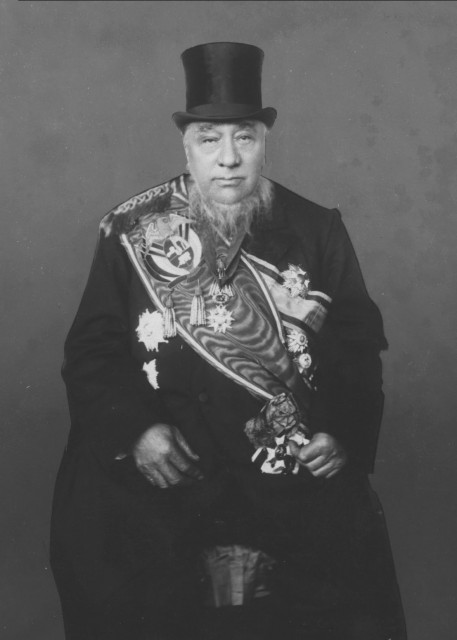Kruger, Paul
1825–1904
South African political leader
Paul Kruger led the Dutch AFRIKANER REPUBLICS in their war against British control in the late 1800s and early 1900s. Kruger was born in Cape Colony in what is now SOUTH AFRICA. When the British tried to take over the region, his family fled in what became known as the Great Trek—the migration of thousands of Dutch settlers called Afrikaners (or Boers) to eastern South Africa. Kruger's family settled in the region of Transvaal, where he later became a farmer and soldier.
Kruger held several government posts in Transvaal. In 1877, when Britain claimed the Afrikaner Republics of Transvaal and the Orange Free State, he went to London to protest. Kruger had little success, and four years later he led the Afrikaners into war against the British. The fighting won independence for the Afrikaner Republics, known collectively as the South African Republic. Kruger became its first president.

Conflict with the British continued, however, and increased when gold was discovered in 1896. Further tensions arose over voting rights for British immigrants who settled in the Afrikaner states. In 1899 fighting resumed in the South African (Boer) War, which the British won in 1902. Kruger was forced to leave Transvaal during the war, and he remained in exile in Europe until his death.
Afrikaners have hailed Kruger as a hero who resisted British imperialism. However, many others have criticized him because he strongly supported the domination of blacks by whites. In the 1980s South Africa issued gold coins named Kruggerands in his honor. Most countries prohibited the sale of the coins in protest of South Africa's policy of apartheid and Kruger's racist ideology. (See also Southern Africa, History.)